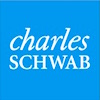
Robo-advice settlement costs Schwab $185 million
'We are proud to have built a product that allows investors to elect not to pay an advisory fee in return for allowing us to hold a portion of the proceeds in cash, and we do not hide the fact that our firm generates revenue for the services we provide,' a Schwab statement said.


